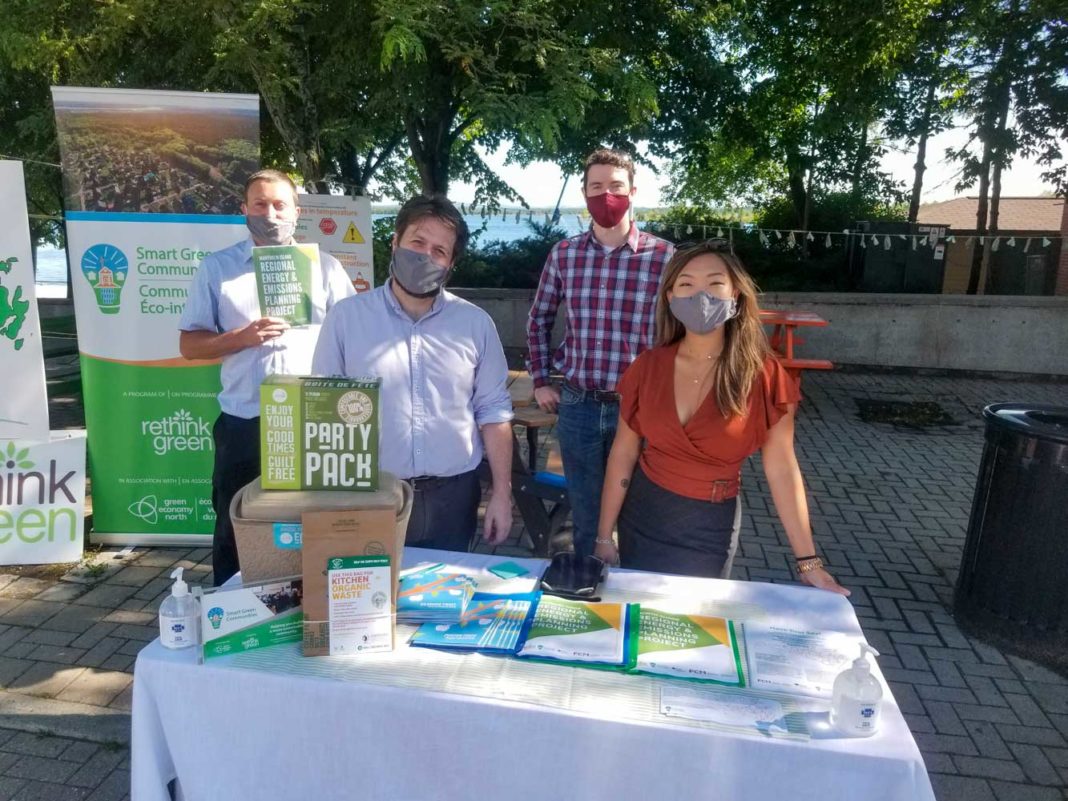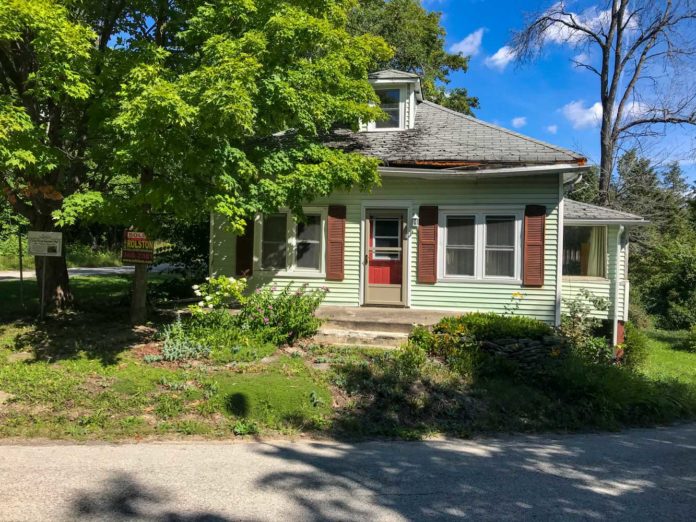LITTLE CURRENT – Smart Green Communities, a program of reThink Green launched its Regional Energy and Emissions Plans (REEP) for Manitoulin Island and the North Shore area in Little Current on Tuesday, August 11. The launch was followed by a display at Soldier Park.
The turnout and feedback was fantastic, said David St. Georges, communications and events director with reThink Green. About 35 people stopped to share their thoughts.
“Homeowners are concerned about the increase in taxes as a result of climate change because of infrastructure change,” said Mr. St. George. “Perhaps they live on the water and they’re worried about erosion of the beach and waterfront. Perhaps they’re concerned about classic waste. Everyone had something and they could tie it back to their lives.”
The primary goal of REEPs is to assist communities in meeting their energy and emission reduction goals by helping them understand current emissions. This work will pave the way for more collaboration between municipalities and communities to reduce energy costs, decrease carbon emissions and address identified climate change risks.
“We’ve been collaborating with Island municipalities and communities throughout the entire process, including First Nations,” said Mr. St. Georges. “It’s very important that they are involved because we want their feedback on what they think their communities can do. We’re obviously going to be working with them to help pick the best solutions. What we can do is take the projects that come from this, items that the Island citizens and stakeholders say are important to them and then we can set up those special projects and find people to lead them. We’ve met so many experts on the Island. The depth of field is incredible so I have no doubt we’ll find passionate people to lead.”
As an example, Mr. St. Georges used the collaboration between Central Manitoulin and Billings Township for a shared sustainability officer who would lead them through the Partners for Climate Protection (PCP) program with the end goal of completing community climate action plans. reThink Green assisted with the funding application for the climate change coordinator position, currently held by Kim Neale. (Smart Green Communities, REEPs and the PCP program are all funded in part by the Federation of Canadian Municipalities.)
“The PCP program is a fantastic program,” he said. “We’ve actually been working with Central Manitoulin and Billings from the beginning. They had a resolution passed in council to work with us so we have been consulting with them. They’ve also come to all of our meetings so we want to support their efforts. They have a very strong leadership regarding their own environmental reductions.”
“The REEP is sort of the collective piece for the region,” he added. “There’s no reason why the two can’t play together. Our data for Central Manitoulin and Billings is publicly sourced data.” The two programs are complementary, he explained, with one taking a macro view and the other more of a micro approach. Other municipalities are in talks around similar shared concepts, he said, but collaboration around infrastructure changes is still a little far out.
Simon Blakeley, director of Green Economy North and Smart Green Communities, noted, “with a predicted shift in average precipitation levels we could see a combination of extreme rainfall events, leading to more frequent flash flooding and also harsher droughts due to prolonged periods of drier weather,” adding, “Northern Ontario must prepare for the increase in damage and associated costs predicted from climate change.”
The region could also see a substantial average summer temperature increase that would result in a greater strain on power grids and create a more hospitable environment for mosquitoes and ticks that carry West Nile virus or the bacteria that causes Lyme disease. While the increase only translates to an average rise of 2.3°C it will mean longer summers and shorter winters.
Advance preparation means better planning for road repairs, construction projects and other expenses listed in municipal asset management plans, Mr. Blakeley said. “With each climate challenge comes an opportunity to develop more sustainably at the same time as addressing identified energy and infrastructure needs.”
“In Northern Ontario we’re surrounded with green space,” Mr. St. Georges concluded. “We don’t think that we’re losing this beautiful nature but it’s a gradual change. In reality, it’s slowly losing its capacity to fix itself. It’s like ‘out of sight, out of mind’ because we don’t see the devastation when it’s not in front of us. This needs to be owned by citizens of the North Shore and the Island. We’ll be there every step of the way to help them carry it through.”
To read the full report or complete the survey, visit SmartGreenCommunities.ca.






